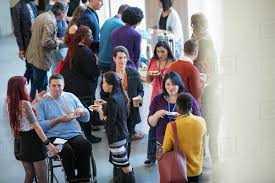The Importance Of Network Diversity
Curated from: forbes.com
Ideas, facts & insights covering these topics:
4 ideas
·1.17K reads
11
Explore the World's Best Ideas
Join today and uncover 100+ curated journeys from 50+ topics. Unlock access to our mobile app with extensive features.
Network diversity
Our networks are usually formed around shared experiences and they influence the way we see the work, how we think and the opportunities we give and receive.
So a lack of diversity inside our networks can propagate inequitable systems and create echo chambers of perspectives.
108
451 reads
Professional networks
They usually comprise the colleagues we work with (team members or project collaborators). It may not seem like it, but we do have a lot of influence over the broader makeup of these networks.
We choose the people we spend time with (at lunch or coffee), the people we mentor or the people we seek advice from. Being intentional about the diversity of that network will result in better decision making for us and our companies.
96
234 reads
Social networks
They have an influence over the way we think and ultimately, over our work outputs.
To diversify our social networks, we can start by following and connecting with people that hold different identities and viewpoints.
89
220 reads
Centered Spaces
Although having diverse networks is very important for expanding circles of influence and achieving equitable results, there is also a need for centered spaces, particularly for populations that are underrepresented or marginalized in the workplace.
73
267 reads
IDEAS CURATED BY
Enzo E.'s ideas are part of this journey:
Learn more about teamwork with this collection
How to manage workplace stress
How to prioritize and make better decisions
How to learn anything fast
Related collections
Similar ideas
3 ideas
Importance of Cultural Competence in Workplace…
medium.datadriveninvestor.com
3 ideas
4 ideas
3 practically painless ways to expand your network
ideas.ted.com
Read & Learn
20x Faster
without
deepstash
with
deepstash
with
deepstash
Personalized microlearning
—
100+ Learning Journeys
—
Access to 200,000+ ideas
—
Access to the mobile app
—
Unlimited idea saving
—
—
Unlimited history
—
—
Unlimited listening to ideas
—
—
Downloading & offline access
—
—
Supercharge your mind with one idea per day
Enter your email and spend 1 minute every day to learn something new.
I agree to receive email updates




